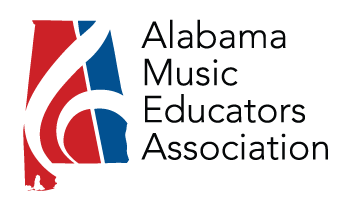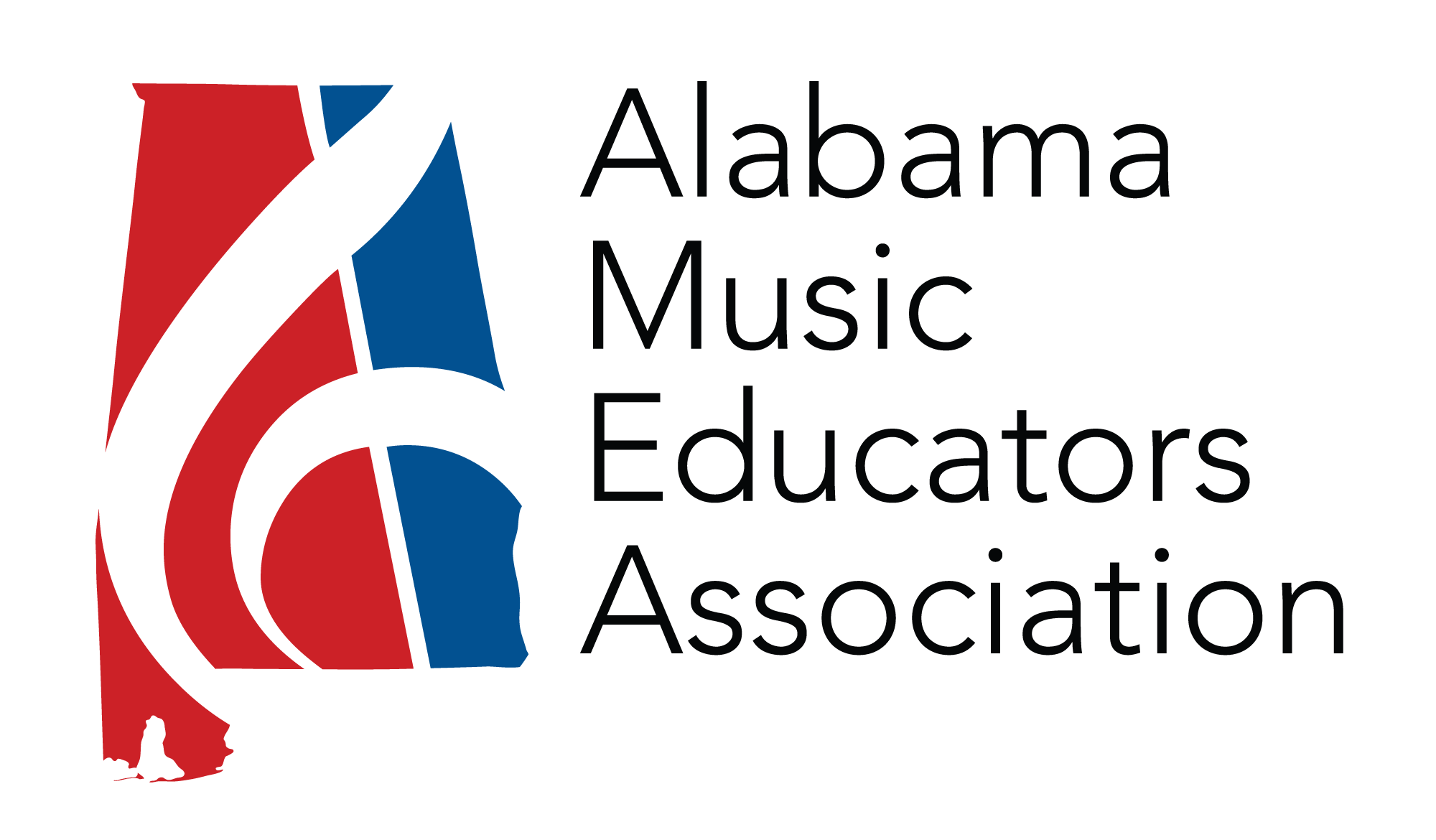Day: February 24, 2019
AMEA: From the President’s Desk
Feb 24 2019

Hello AMEA!
Sometimes it’s beneficial to take a step away from the daily realities of being in the classroom in order to recharge and reset our appreciation of music, and possibly our daily teaching practices. Conferences, committee work, and other professional development opportunities are the perfect vehicles for us to accomplish that recharging and resetting process. Ryan Lilly, an expert in the field of business development, advises to “Be a Professional at what you do. No one shows up to meetings of the Unsuccessful Skydivers Club.” And Amit Kalantri, an engineer and author, addresses the subject by stating that, “Professionalism is not a tactic, but a moral value.” The entire community that comprises the AMEA certainly lived up to these goals and morals with your participation in our 2019 Professional Development Conference.
Wow! What a great conference we had in Birmingham. I am so proud of our entire organization for putting together such a wonderful professional development opportunity and thank you so much for your attendance. The numbers are in, and it was by far the second largest AMEA Conference in our history. One thousand and three members were registered, and exactly one thousand attended, plus a good amount of guests as well. That is clear evidence of your commitment to our profession and our students. There are so many people to thank and so many people to congratulate that I could fill this entire issue of the Ala Breve if that was possible.
The first people I would like to thank are two gentlemen without which, we would have no conference. Thank you, Ron Bearden and James Champion for everything you do for the AMEA. You are very much appreciated and your tireless efforts have not gone unnoticed. Thanks also to President-Elect David Raney and Immediate Past-President Susan Smith for all of their help, guidance, and leadership. Susan also did a wonderful job with our FAME students and their sessions. Next is the staff of the AMEA, and there are not adequate words or space in this article to accurately express their importance to us. Garry Taylor, Rusty Logan, Carl Hancock, and Pat Stegall are all amazing professionals and truly dedicated to our organization. They work all year long to guarantee the success of our conference. Thanks also to our vendors and exhibitors for supporting the AMEA, and I would also like to thank the membership for visiting them. Revenue from the exhibition hall was once again up this year, which helps pay for the conference. Traffic through the exhibits was also up this year, and our exhibitors appreciated seeing all of you at their booths. A healthy relationship between us educators and our industry partners is both beneficial and necessary. Thanks to Becky Lightfoot for serving as our Industry Representative, and for representing our partners with such dignity and sincerity.
The Governing Board assembled a fabulous experience, full of diverse and useful learning opportunities. We had wonderful concerts, informative interest sessions, and many occasions for collaboration with colleagues. Thank you so much to: Doug Farris (ABA), Guy Harrison (AOA), Meg Jones (AVA), Phil Wilson (Elementary/General), Mildred Lanier (Higher Ed), Ted Hoffman (Collegiate Advisor), and Jordan Hare Banks (Collegiate) for everything you did to make our conference such a wonderful experience. Also thanks to Kim Bain and the Jazz Division for doing such an awesome job with our All-State Jazz Bands and Randall Coleman along with those that helped facilitate the outstanding Intercollegiate Band. I would also like to thank Carla Gallahan for always making sure we have accurate documentation for our activities, and for ensuring the correct operation of our various endeavors. I am so honored to have the opportunity to work with the consummate professionals who comprise the AMEA Governing Board.
They represent you well, work diligently for our organization, and should be commended for their dedication to music education in Alabama.
To apply for, prepare, and present a performance for one’s colleagues is a very rewarding experience, and is not without challenges to overcome. So a sincere ‘Thanks’ and ‘Congratulations’ goes out to all of our colleagues who presented concerts for us to be inspired by and enjoy. Thanks also to those who presented interest sessions full of information which both enriched us personally, and nourished our profession.
Our special guests were amazing, intuitive, informative, and entertaining. Dian Eddleman, our NAfME Southern Division President was fantastic in all the sessions we asked her to do. She brought a wealth of knowledge and information to us and worked purposefully to present targeted data, findings, and communication to various groups throughout her stay with us. Andy Meadows, our ALSDE Arts Education Specialist, also brought information, concern, and communication while visiting several meetings and sessions during his time with us. It is indeed profitable and beneficial to have an open line of communication and mutual understanding with our state officials in Montgomery. Dr. Tim Lautzenheiser was the one and only, as only he can be. He is always uplifting, rejuvenating, inspiring, encouraging, and motivating. He is without equal as the preeminent music education speaker and advocate in our country. And to everybody else who contributed in any way to the success of our conference, thank you very much.
The AMEA Governing Board is already working on next year’s conference and I am confident that we will again have a wonderful experience. But this time, we’re going back in Montgomery! Now is the time to decide to participate in next year’s conference. Make a commitment to apply for a performance opportunity. Create chamber groups at your school and apply for a lobby performance. We have so many talented professionals in this state with so much knowledge to share with each other. Decide now to apply to present a session on the topic you have intimate knowledge of and are passionate about. Or, if there is something you are studying and gaining understanding about, decide now to finish your research and present it at our conference next year. Together, we all make the AMEA a powerful force for the betterment of our profession and to the benefit our students. Let’s have a great 2019, and best wishes to all.
Music Education is Awesome in Alabama!
Respectfully Submitted,
Greg Gumina
ABA: An AMEA Conference for the Record Books!
Feb 24 2019

This year’s conference was outstanding with so many opportunities for professional development. Wednesday began with the AMEA board and ABA board meeting to finalize the conference and planning for the future. Thursday’s concert schedule was a great view into the instrumental education in Alabama. The day started on aspectacular note with the Liberty Park 7th & 8th Middle School Band and Oak Mountain High School Symphonic Band. The concerts from Muscle Shoals High School Wind Ensemble and Thompson High School Wind Ensemble were both amazing glimpses into what our bands can achieve. The night continued with the UAB Wind Symphony which was outstanding. A new event with the 10 pm concert featured the Alabama Winds. Their concert included “In My Father’s Eyes” by Julie Giroux. It is dedicated to the 1963 bombing victims of the 16th Street Baptist Church. It featured the choir from the 16th St. Baptist Church. It was a moment none of us will soon forget. Friday’s concerts with Fairhope Middle School Symphonic Band and Spain Park High Symphonic Winds were equally as great. Thanks to these directors and students for your hard work and dedication to your programs. So many of the clinics were done by our own members. Many thanks to all the clinicians for sharing your wonderful talents. As you begin preparing for MPA consider applying to perform next year. We have great bands in this state at all levels. Bite the bullet and apply to perform.
As we have just finished all districts all-state auditions, we must learn the process to benefit our students. For any ABA event, read the handbook on that section. The most recent edition can be found on myamea.org. When you don’t prepare, it’s your students that suffer. It also causes stress on the chairmen and people organizing the event.
MPA is our next event. As you prepare, remember everyone cannot perform at 11:00am on the last day. Be flexible and cooperate so when the adjudication starts it is as stress-free as it can be.
The solo festival will register online this year. The link will be emailed and posted on the abafest.com website. Fill out all information and print the last page of the receipt email. The band director, student, and parent must sign this page before mailing with payment to Harry McAfee.
Directors are so passionate about their students. When we are involved in ABA events they are all our students. Everyone deserves our full professional attention.
At All-state this year, we will have elections for Jazz President-Elect, Recording Secretary, and ABA President-Elect. The nominating committee is Chris Lindley from Albertville High School, David Caddell from Echols Middle School, and Will Mixon from Gulf Shores High School. If you have recommendations, please contact them. The organization needs the best person for these positions.
Lastly, abafest.com in its current form will end July 31st. Please watch for instructions, go to district meetings and read emails. “I don’t know” can’t be an excuse. Do we accept that from our students? Let’s be professional and remember we are band directors and can make magic out of situations that possibly could not succeed. Good Luck at MPA and we will see you in Huntsville for All-State.
At All-State we will discuss and vote on the following legislation:
2019-1
Currently:
Article XVI, Section 3
c. No electronic instruments may be used unless included in the score by the composer. Any other exceptions to must be presented to the Chairman of the Music Selection Committee (Vice-President) for approval.
Change to/Add:
Article XVI, Section 3
Electronic instruments may be used if they are included in the score by the composer or with approval from the Chairman of the Music Selection Committee (Vice President). An electronic piano and necessary hardware, provided by the band performing, will be allowed to be used to substitute for a piano part that is included in the score by the composer.
Rationale:
There are many publications that require a piano part. This change to the bylaws will allow directors to choose to perform on an acoustic piano (if available) or an electronic piano. The main advantages to the electronic piano are the student can prepare for assessment on the instrument they will perform on and you can ensure that it is in tune
2019-2
Article XX. Non-Traditional Students
This article outlines the process to allow non-traditional students to participate in a band with Alabama Bandmaster Association member public schools. The guidelines below outline participation for all activities sponsored by the Alabama Bandmasters Association.
Section 1. Home School Guidelines
a. Enrollment
1) Students must enroll in a member public school in order to participate in a band performance or practice.
2) Must be enrolled at the member public school that serves the area in which the student’s guardians reside.
3) Must be enrolled within the first 20 days of the semester in the school they are zoned to attend.
4) All home school students are eligible once enrolled based on local board policy.
b. Academic Accountability
1) Must be enrolled and attend two electives offered by the school.
i. One of these electives is required to be the band class the student participates with at performances.
ii. The other elective class can be taken on campus or through the school ’s virtual program.
iii. The ABA recommends that the other elective is not an additional band class or private lessons class.
c. Practice Time
1) A home school student’s practice time must be equivalent to but not to exceed that of a traditional student during the school day.
Section 2. Virtual School Guidelines
a. Enrollment
1) Virtual school students must follow all ALSDE policies.
2) Local board policy must be in accordance will all ABA bylaws.
b. Academic Accountability1) The student must be enrolled and attend the band class the student participates with at performances.
c. Practice Time:
1) A home school student’s practice time must be equivalent to but not to exceed that of a traditional student during the school day.
Section 3. Charter School Guidelines a. Enrollment
1) Alabama public charter school students must enroll within the first 20 days of the semester in the school they are zoned to attend.
2) For eligibility in an Alabama public charter school, enrollment must be at the public charter school that serves the area in which the student’s parents reside and all other requirements are met.
3) If a public charter school (conversion or start up) does not have band, the student may return to his/her home school (based on the student’s residence) to participate.
b. Academic Accountability
1) The student must be enrolled and attend the band class the student participates with at performances.
c. Practice Time:
1) A home school student’s practice time must be equivalent to but not to exceed that of a traditional student
during the school day.
Mentioned in Article XI, Section 1, Letter g (pg. 9) – All-State Auditions, & Article XVI, Section 3, Letter h (pg. 16) – MPA
1) Only students who are enrolled in their high school, junior high school, or middle school band are eligible to participate in the Alabama Bandmasters Music Performance Assessment.
2) Students who are being home schooled under guidelines established by the State Department of Education may participate in the Alabama Bandmasters Music Performance Assessments as long as they meet the following prerequisite: Membership in an instrumental ensemble that meets on a regular basis to rehearse and perform traditional band literature, whose conductor meets all membership requirements of the Alabama Bandmasters Association.
ELEM/GEN: Learning Together Makes Us Better
Feb 24 2019
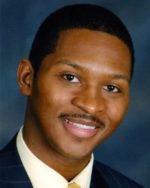
Fred Rogers, creator and host of Mr. Roger’s Neighborhood once said,” Imagining something may be the first step in making it happen, but it takes the real time and real efforts of real people to learn things, make things, turn thoughts into deeds or visions into inventions.” This, my friends, is exactly what WE did! During the 2019 AMEA Professional Development Conference we learned new things, made music, thought deeply about things and hopefully, when you returned to your schools, turned those thoughts into new exciting experiences for your students. We were inspired to use music as a vehicle to make our neighborhoods a better place and learned how to play rhythms on yoga balls. We celebrated Alabama’s birthday, strummed guitars, learned how to record our students and even how to put on a show. Beth Ann Hepburn challenged us with new and innovative activities while also touching on some traditional ones as well. We composed, weaved our way through music classes through creative planning, and transitioning and explored ways to engage hard to reach students. All of this, and much much more, happened in just three days. WHEW!
Thorpe (2014) stated,” Within the United States and across nations, there seems to be consensus that teacher quality is the most important school-based variable in determining how well a child learns” (Thorpe, 2014, p. 1). Barrett (2010) says the key to improving teacher quality, and improving student learning, is for teachers to engage in professional development. In study after study, researchers agree that participating in professional development activities improves teacher quality which in turn elevates student’s learning. Continue to renew and refresh yourself by participating in quality professional learning opportunities throughout the year. Our students deserve it!
During our business meeting, we elected the 2019-2021 Elementary/General Division Executive Board:
- President: Betty Wilson
- President-Elect: Sarah McLendon
- Treasurer: Lori Zachary
- Secretary: Rob Lyda
- Hospitality: Kristi Howze
- Past-President: Phil Wilson
- Festival Director: Melissa McIntyre
As you continue to create and develop new exciting lessons in your classrooms, consider sharing those ideas at our 2020 AMEA Professional Development Conference which will take place in Montgomery. Speaking of Montgomery, we will also be moving our Elementary Music Festival to Eastmont Baptist Church in Montgomery. Our new festival director Melissa McIntyre, and the festival committee, has already been hard at work planning the festival and Fall workshop More details to come.
Thank you for all that you do to make our musical neighborhoods better places. As always, if you have questions or concerns, please contact us through the division email at elementaryAMEA@gmail.com. Remember to follow and post pictures and videos of things you are doing in your classrooms on our AMEA Elementary Facebook group page.
Thorpe, R. (2014). Sustaining the teaching profession. New England Journal of Public Policy, 26(1), 5.
Upcoming Events
ALABAMA CHAPTER OF AOSA SPRING WORKSHOP March 2, 9 a.m.-3 p.m.
Lorelei Batislaong
Vestavia Hills United Methodist Church
Sweet Home Alabama Kodály Educators (SHAKE) Free Spring Workshop
Dr. Michele Paise
April 6, 2019, Vestavia Hills Elementary East, 9-3
2019 Young Voices Festival
April 26-27, 2019
University of Alabama
Contact: meredithcdevore@gmail.com
World Music Drumming Level I
Crestline Elementary, Hartselle
June 3-7, 2019
Contact: gregory.pearcy@hartselletigers.org
Orff Level II and III
Samford University
June 17-28, 2019
Contact: lhardin@samford.edu
Kodály Levels I, II & III
University of Montevallo
July 8-19, 2019
Saint Luke’s Episcopal Church in Mountain Brook Contact: ahalliday@montevallo.edu
East Alabama Music Workshop
Grace United Methodist Church, Auburn August 24, 2019
Contact: lydarob@me.com
Elementary Music Festival
Eastmont Baptist Church, Montgomery
October 18, 2019
Clinician: Dr. Madeline Bridges, Belmont University Clinician: Dr. Becky Halliday, University of Montevallo Contact: mcintyrem@vestavia.k12.al.us
COLL: Why are LGBTQ+ Students Drawn to the Music Classroom?
Feb 24 2019
Oftentimes in the modern school system we see efforts to “include everyone”. Yet many state governments and school administrators simultaneously preach the suppression of certain minorities. Most often these minorities are LGBTQ+ students, and even faculty,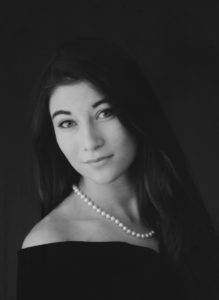 that do not receive the proper inclusion in the general education system. While schools push for students to succeed in STEM subjects, many of these minority students instead turn to the arts to find a place of solace from the pressures of daily academic life. A place where they can be themselves. Inclusion is a large part of students’ enjoyment of arts programs, specifically in music. McBride says, “For many LGBTQ students and teachers, music classrooms are still one of the most accepting and safe spaces in… schools today.” (2016).
that do not receive the proper inclusion in the general education system. While schools push for students to succeed in STEM subjects, many of these minority students instead turn to the arts to find a place of solace from the pressures of daily academic life. A place where they can be themselves. Inclusion is a large part of students’ enjoyment of arts programs, specifically in music. McBride says, “For many LGBTQ students and teachers, music classrooms are still one of the most accepting and safe spaces in… schools today.” (2016).
The Music Educator plays a crucial role in the LGBTQ+ students’ feeling of acceptance and presence in the classroom. If the Educator is unwelcoming and intolerant toward the minority students, the rest of the class will perceive this hostility and react in some way. Music Educators must understand the importance of their role and the influence they have on their students. Each of their students will form a bond with music that is their own, helping the student on their journey through life as they discover how to express themselves to others successfully. It is the task of the Music Educator to provide a haven for this discovery to take place.
Why is it that the music classroom seems to be so pertinent to the LGBTQ+ community’s sense of belonging? Associate Professor of Music and Director of Choirs at Case Western Reserve University, Dr. Garret, says that like any student, “LGBTQ students want to belong. They want positive reinforcement from teachers that they are okay. Music educators can provide this type of positive support in a number of ways, many of which focus on inclusion.” (2012).
Inclusion in the music classroom is essential in all aspects and stages of the students’ lives. “Music educators provide students with opportunities to create, perform, and reflect as individuals and as members of a group. Establishing a positive and inclusive learning environment is essential to maximizing student potential” (Garret, 2012). In elementary music children learn songs together: singing together, playing together, and learning instruments together as a group. As band and choir students age, they see the same inclusiveness arise in working together for a common goal— the next concert or competition. The students find it easy to belong to a group of people who all share a deep passion for similar things. At the same time, these students also desire a place where they can be an individual.
In the modern age, LGBTQ+ students find it hard to cope with the day to day struggles they face. Roughly 90% of LGBTQ+ high school students report being verbally harassed due to their sexual orientation, 60% feel unsafe on a regular basis, nearly half experience physical harassment or assault, and almost 2/3 hear homophobic remarks from school personnel. (Bergonzi, 2009). The very people charged with protecting students are helping to put LGBTQ+ students in dangerous emotional and physical states. The music classroom has the potential to protect its students from these dangers, and it all begins with the efforts of the Music Educator.
The first step to making a classroom safe for any minority is to be aware of your own personal bias(es) and be willing to accept any student that comes your way. The educator must be open and provide a welcoming classroom environment, so no student feels rejected or unwanted. Bergonzi describes this fine line: “Rather than well-intended sympathy, empathy from and supportive alliances with straight teachers, staff, and students are needed.” This means instead of simply feeling bad for the LGBTQ+ community, you are trying to truly understand their predicament and what you can do to help. It is not the students’ fault they may feel unsafe, but perhaps the fact that they truly are not safe in their day to day environment. Once the educator understands this, they can create a safer space for their students and provide an example to the future educators in the room and to other classrooms in the county and even the state. Garret mentions that the societal norm that prohibits many teachers from realizing their classroom is not as inclusive as it could be is easily overcome through communication: “Personal bias is frequently identified as an obstacle to inclusion of LGBTQ students, whether based on religious beliefs or on other value systems…society views heterosexuality as the standard and all others as deviations.” (Garret, 2012). Conversations with local LGBTQ+ organizations, support groups, and even just local families is one of the first steps an educator can take to bring awareness to the classroom. LGBTQ+ students want to learn and be involved in music just as desperately as heterosexual students. Therefore, it is important to “advertise” your program correctly to the entire community of students. For example, using sports and other “manly” things to bring people through your choir’s doors is a strategy that leaves out a good percentage of young men who do not resonate with sports or “manly” things. McBride mentions an advertisement he saw that read, “REAL MEN SING”. A seemingly attractive idea, but not one that will appeal to all young men. If a student desires to sing and truly has a hunger for music, that pupil should be your target— and they may not follow the conventional “masculinity” stereotype. Instead of a stereotype, advertise your group to the young musicians out there who simply want to make music.
It is amazing that music can provide a safe place for LGBTQ+ students when schools have not yet stepped up to the plate. The culture of the music classroom determines the future of the program, so it is important to keep it inclusive and open but to not change oneself in the process of creating the classroom culture. For example, an LGBTQ+ teacher would not benefit from imitating a gender stereotype (heterosexual Male/Female) in the classroom. In contrast, a person of religion does not need to “convert” to anything new to create a safe classroom, nor does a straight person need to strive to hide their sexuality. These are simply examples of personal bias that the educator should be aware of. Curriculum across schools is improving with inclusivity of LGBTQ+ influencers being mentioned throughout history. In music, Bergonzi suggests we improve how we represent music history by speaking more broadly of music. This can be done by mentioning other cultures, women in music, and the immense influence LGBTQ+ composers and performers have had on western music for decades. (2009).
Students should not feel as though they are a thing that does not belong in society and has not existed until now. As Bergonzi (2009) says, “Sexual orientation in music education is not a new phenomenon.” LGBTQ+ students have the opportunity to discover music and what it means to them in their own lives through the music classroom. Music educators are the crucial piece of the safe space puzzle, providing the tools, support, and acknowledgment students need to succeed. The role and influence of music educators in the lives of LGBTQ+ students is an essential first step to those same students going out into the world and discovering what being LGBTQ+ means to them and how they can share their story with the world, creating an endless cycle of love and support for future students.
Works Cited
Bergonzi, Louis. “Sexual Orientation and Music Education: Continuing a Tradition.” Music Educators Journal, December 2009, pp. 21-25.
Garrett, Mathew L. “The LGBTQ Component of 21st-Century Music Teacher Training: Strategies for Inclusion From the Research Literature.” Applications of Research in Music Education, November 2012, pp. 55-62.
Lehmann, Andreas, Woody, Robert, and Sloboda, John A. (2007). Psychology for Musicians: Understanding and Acquiring the Skills. New York: Oxford University Press.
McBride, Nicholas R. “Singing, Sissies, and Sexual Identity.” Music Educators Journal, June 2016, pp. 36-40.
AVA: News and Updates
Feb 24 2019

AMEA Conference
It was so great to see so many of you at the AMEA Conference. While I always love going to concerts and sessions, some of my favorite moments of our conferences and workshops are in conversations with my colleagues. It’s always a time for me to reconnect and remind myself that I am not in this alone. Being the only teachers of our disciplines at our schools can feel like being on an island, so coming together with other choral directors always leaves me encouraged and renewed.
Congratulations and thank you to all of this year’s performing ensembles. It was obvious that there were tremendous amounts of hard work and thoughtful planning behind all of the performances. Your choirs made me smile, moved me to tears, and inspired me. Thank you for going above and beyond to share your music with all of us.
Also, thank you to our session presenters. We had a great variety of topics and it was great to have several of our own AVA directors presenting in addition to our invited clinician, Dr. Lori Hetzel. Please consider applying to present a session next year. You all are doing great things in your classrooms and we can all benefit from learning from each other!
Next year, the AMEA conference will be returning to Montgomery. We are exploring some great options for our concert sessions and so we hope you will apply to perform. We are again providing recordings of your SCPA performances as part of your registration and we hope you will take advantage of this and submit a performance application to AMEA.
All-State Auditions
Thank you to everyone for helping us test Acceptd as a potential platform for conducting auditions in the future. Before the All-State General Membership Meeting, please take a few minutes to reflect on the process. Ginny Coleman, Vice-President, will be sharing a survey with you all during the festival to gather your feedback. We would love to hear any of your thoughts and concerns.
All-State
This year’s All-State Festival is going to feature some wonderful music and clinicians. Please take a moment to read about the clinicians in this issue of the Ala Breve. You may also visit the AVA website to view the official All-State correspondence which contains rehearsal duties, the schedule, and more details. Thank you so much to all of you who have volunteered to serve in various capacities throughout the festival. It is a huge event and could not happen without your service.
All-State Show Choir
In the past several years, we have been modifying the ASSC festival and auditions in different ways in an effort to raise participation numbers. We have moved the festival date so as to not coincide with show choir season, have included 9th-grade students, and have conducted auditions by video to prevent schools from having to travel and miss school. Despite all of these efforts, our All-State Show Choir participation has not increased. I plan to make a motion at this year’s All-State General Membership Meeting to remove the requirement that ASSC students also make a traditional All-State Choir. Due to feedback on recent surveys, I know that our AVA members are split in their opinions regarding this requirement. Therefore, we anticipate needing to take a vote by ballot during the meeting. Please make every effort to attend the meeting to cast your vote.
SCPA
As SCPA approaches, please take a few minutes to read through the new guidelines and rubric. We are very excited about the new levels of sight reading that will hopefully encourage schools that have previously been hesitant about SCPA to participate. In addition to the new level guidelines, we also changed the Standing Rules to allow directors to establish tonality once at any time during the 5-minute study period. This will allow choirs who use audiation during the study period to audiate in the key of the sight-reading example.
Looking Ahead
During the All-State Festival, we will share a survey regarding event dates for next year. This survey was a great help to the District Chairmen last year in their planning. Please take some time before the festival to view your school calendar for next year and to prepare to share your requests with your District Chairman through the survey.
As always, we welcome any and all feedback from the membership. The AVA Board seeks to be transparent and to serve you all as best as we are able. Please contact me at presidentofava@gmail.com with any thoughts, concerns, or questions. I look forward to seeing you all in March!
Sincerely,
Meg Jones
AOA: Strike up the… Orchestra!
Feb 24 2019
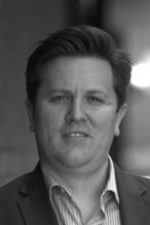
What a wonderful AMEA Conference! As physically exhausting as these conferences can be, I for one, am feeling professionally refreshed and primed for the year ahead. The AOA made a point to sponsor sessions that not only spoke to our membership directly but also touched on topics that are relevant to all music educators, both seasoned and novice alike. Our headline clinician, Bob Phillips (Alfred Music), was inspirational with his sessions on beginning strings, the art and science of motivation, and his session on transforming the tone of your ensemble. We were also fortunate to have Dr. Jason Sulliman (Troy University) inform us about the importance of wellness and injury prevention and Dr. Anne Witt (University of Alabama) discuss classroom management strategies. Joe Brennan (Haverford High School, PA) joined us again this year with tips on how to improve ensemble skills and Dr. Thomas Brough focused his attention on our pre-service teachers with tips and advice on things young educators need to know. Finally, our colleagues at the University of North Alabama – Dr. Tracy Wiggins, Dr. Meghan Merciers, Sam Merciers, and Dr. Whitney O’Neal joined us for an early session on Saturday morning on teaching improvisation in the ensemble setting. It was a great way to end the conference!
I would also like to take this opportunity to thank Greg Gumina for providing the opportunity for the Alabama Symphony Youth Orchestra to perform at the Keynote address. Greg’s support of the AOA is very much appreciated. Having the ASYO perform highlighted the wonderful opportunities that could exist for ALL of our students with the establishment, growth and strengthening of string programs around our state. I encourage everyone to seek out those students that are not participating in your school music programs because they don’t have an ensemble to join and consider advocating for those students with your local school boards. The AOA is here to assist in any way we can to help give those students the same opportunities as their peers in band, choir and other school-based arts programs.
A big shout out also has to the go to the Alabama School of Fine Arts String Ensemble for their lobby performance. Directed by Kim Strickland the ensemble played an eclectic program that was very well received by those that attended. The AOA would like to encourage more of our state string/orchestra programs to consider applying to perform in 2020!
By the time this edition of Ala Breve arrives in your mailbox or inbox the AOA will have concluded its annual All-State Orchestra Festival. We would like to thank the University of Alabama for once again hosting the festival! As in previous years the AOA held a Composition Contest with the winning piece receiving its premier performance by the Festival Orchestra. This year we will feature Discord by Nabil Abad. Mr. Abad’s work was chosen from more than 30 entries from all over the world. In case you missed it in a previous issue, our clinicians this year are Dr. Raphael Jimenez, Director of Orchestras at Oberlin College, Mr. Bryan Buffaloe, Director of Orchestras at Clear Lake High School (Houston, TX), and Dr. Gail Barnes (University of South Carolina), Professor of Music Education and Director of the USC String Project. We are excited to have such a talented line up of conductors to work with our students! I also need to take this opportunity to thank the members of the AOA Board for all their hard work in bringing our All-State festival to fruition. Without such a great team effort we would not be able to put forth this opportunity for the students in our state. I would also like to thank all of our District Chairs for their work in recruiting students and running the auditions for this year’s festival.
Last, but not least, the AOA will be hosting our 4th Music Performance Assessment event on April 5 at Gadsden City High School. I would like to thank Keith LaBenne and the Gadsden City High School administration for their willingness to host us this year. More information about the event can be found on our website – www.alabamaorchestraassociation.org.
I hope that your year is filled with great music making, student success, and professional satisfaction. Please reach out and let us know how the AOA can better serve you and your students. I look forward to seeing you at one of our remaining spring events.
Regards,
Guy Harrison
President
Alabama Orchestra Association
Important Spring Dates
Registration Deadline for MPA – Orchestra: March 1
MPA – Orchestra Event: Friday April 5
Gadsden City High School
HED: From the President!
Feb 24 2019
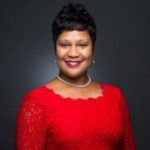
Dynamic, stimulating, challenging, and exciting are words that describe the atmosphere, performances, and academic discourse that took place at the 2019 AMEA Professional Development Conference. There was something to satisfy everyone’s intellectual and artistic interest. And it was only possible because of the wonderful student and faculty performances, expert presenters and panelists, research presentations, and memorable keynote speaker.
When I attend the AMEA conferences, I always come away renewed and so proud of our profession, and I was not disappointed this year. The commitment of faculty to expose young people to the beauty and complexity of music and prepare and stretch future music educators did not go unnoticed. As faculty at colleges and universities, our continued collaboration and support of one another was on display throughout the conference. That unity created beautiful harmony and teamwork. Thank you for all you do to make our HED Division progressive and strong.
Now what’s next? The AMEA Board and HED Officers are anticipating the 2020 Conference in Montgomery, Alabama. The opportunity to perform, bring your ensemble, or be a presenter or presider is available. No, it’s not too soon to begin thinking about how you can get involved. Go ahead and begin thinking about a presentation topic that you might want to submit. Go ahead and visualize your ensemble performing on stage. We want to make the 2020 conference bigger and better and we need “you.”
As you settle into the spring semester, I hope that the love you have for music continues to stir your passion to new heights. If you have comments, suggestions, or questions, please don’t hesitate to contact me at (mlanier@jeffersonstate.edu).

